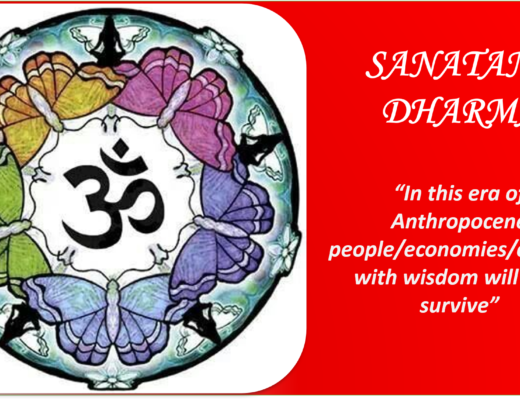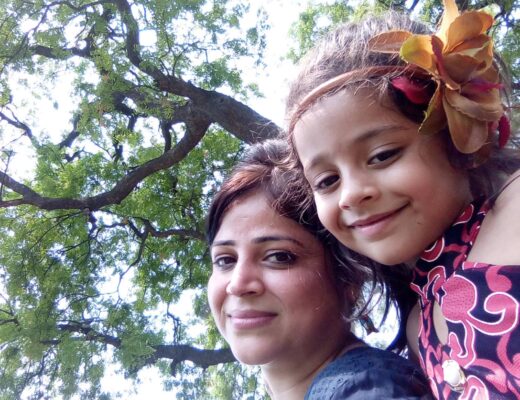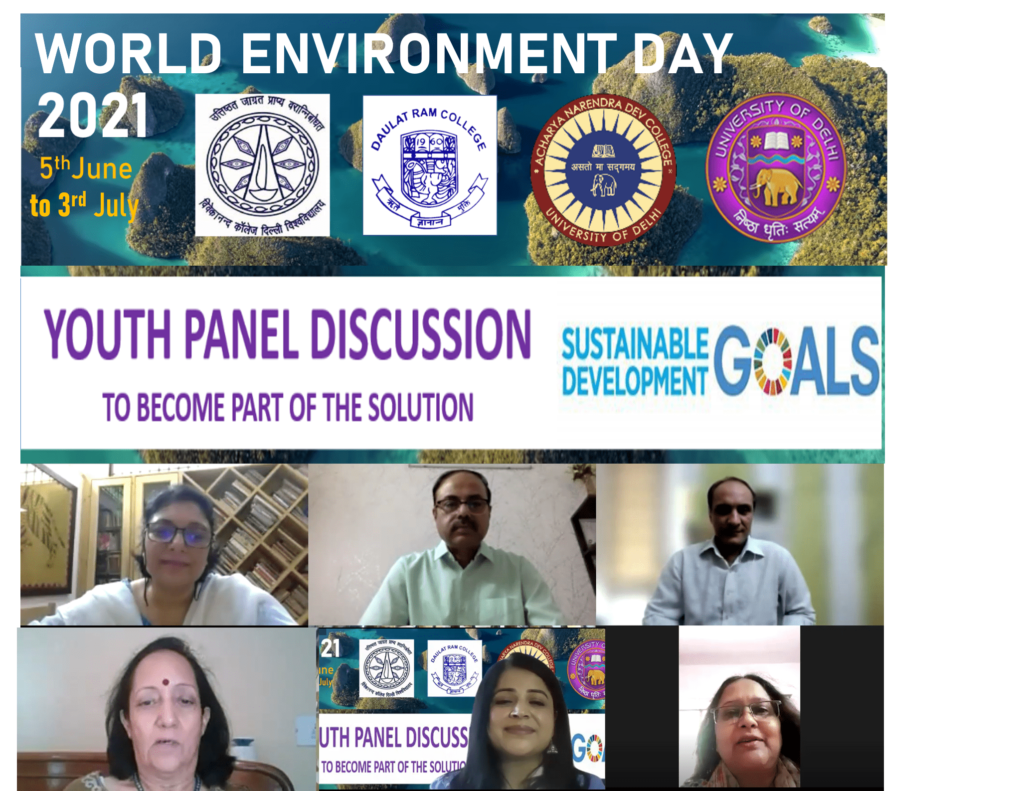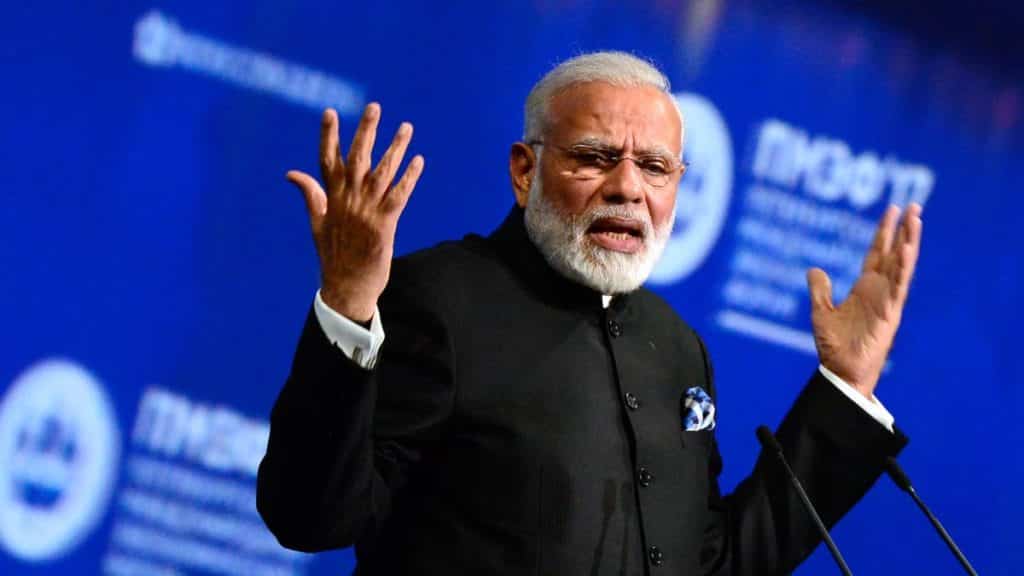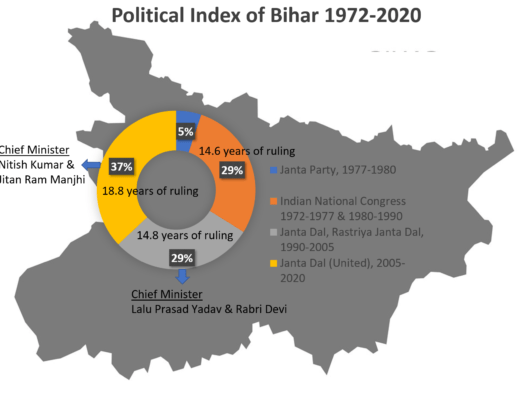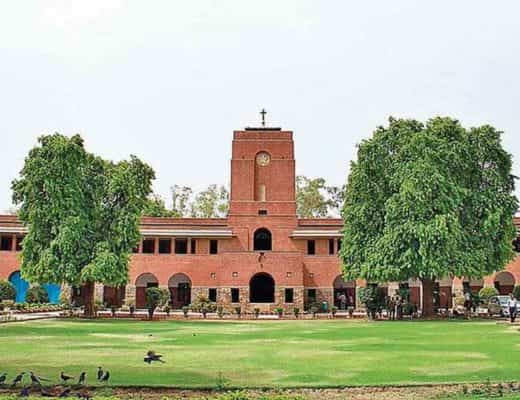The new era will be globalized as a result of technology, and localized as a repercussion of the pandemic. We argue that this new localized globalized world will not be detrimental to the concept of economic development which is inclusive and sustainable. Of course, so long ‘resilience’ and its weakest link has been suitably addressed. Therefore, going forward, as our Prime Minister knows well ‘neighbourhood resilience’ will be a critical component for inclusive and sustainable human development. The concept of ‘neighbourhood resilience’ is valid through various prisms, of varied social sciences, and also in the eyes of our Indic Knowledge systems.
Literature suggests that Indic culture and Hinduism, in particular as a doctrine has a better and more grounded understanding of uncertainty than other knowledge or belief paradigms. ‘The strength of a Civilization may very well be judged by many attributes. Yet at its core the strength lies in the interpretation of the unknown. The relationship with the unfathomable defines a Civilization. The coming to terms with incertitude has a few valid paths, some may find solace in belief, or some may continue seeking. The age of enlightenment has found no path of certitude. The path is unknown. Acceptance of the unknown itself is a path. This acceptance leads to universal toleration. Non-acceptance will not lead to universal toleration. There is a huge profundity in realizing unknown, from there emerges a knowledge system. That is the genesis of the Indic Knowledge system.’ Our Prime Minister, and a large section of Indic communities intrinsically understand the Indic Knowledge system. Therefore, our communities are innately better prepared for unprecedented situations. Very strangely, India has shown this again in COVID-19 situation under the leadership of our Honorable Prime Minister Sri Narendra Modi. Taking a decision of complete lockdown for a democratic country like India was a huge step which our Prime Minister took at the very right time. The risk was high and it was unknown as well that how the 1.3 billion strong, diverse and expansive population of India will react to this and will it be successful or not? But interestingly it was followed and welcomed by Indians like never before. A real time study[1] of COVID-19 issues, governance and community preparedness in India was conducted and respondents from several states including Delhi, Haryana, Uttar Pradesh, Bihar and Maharashtra were participated. As per the study, more than 95% of the respondents supported the decision of complete lockdown (Figure 1). The decision of complete lockdown was also considered as a sustainable solution by more than 92% of the respondents to control corona virus for a country like India (Figure 2).
At the question of world preparedness for corona virus, only 28% of the respondents agreed that world is prepared for the virus. Whereas, in case of India 56.6% of the respondents agreed that India is prepared for the virus at the national level (figure 3). This is how interestingly, the respondents showed their solidarity, faith and belief they have in their prime minister in this unprecedented COVID-19 situation
The tremendous death toll in the world’s leading economies is causing an unsurmountable upheaval and the pain is unbearable. This situation compels one to think that what went wrong in these countries. There could be several reasons but one thing which was common to these countries were prima facie that lockdown has varyingly failed, or, distancing did not work out due to variety of certain counter-productive liberal attitudes. On the contrary, India despite of having 3 to 5 times more population has been able to successfully follow the lockdown and social distancing norms which in turn saving the country from massive death toll. Or, it can be said that the West, in comparison to India, in spite of their Knowledge institutions, their world acclaimed Universities, and Scientific laboratories missed out on the essential ingredient to manage the unprecedented. That, secret ingredient is the Indic Knowledge system.
World is applauding the decision of Prime Minister Modi for lockdown at the right time and other relevant decisions he has made. This has undoubtedly made Narendra Modi one of the most successful world leader of COVID-19 era. At the granular level what made him successful was
- His understanding about Indic culture and values
- His ability to connect with community
- Ability to take risks and tough decisions
- His Inner conscience and commitment to the community and nation
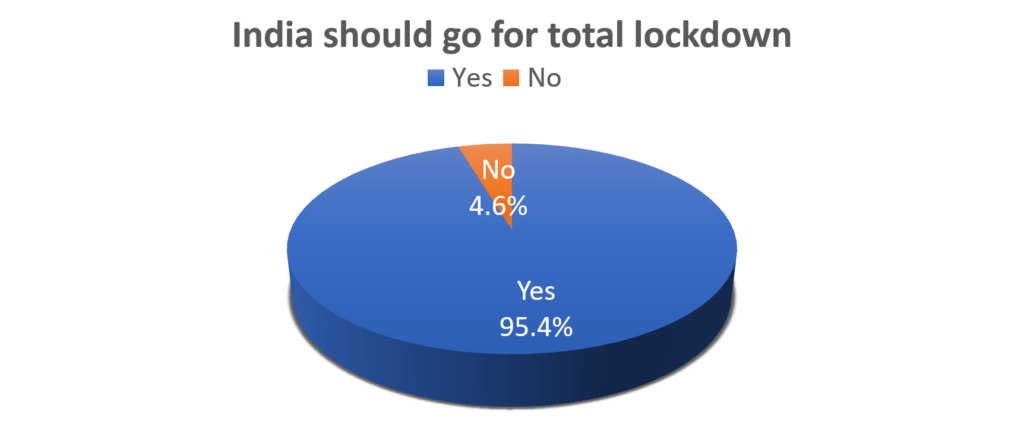
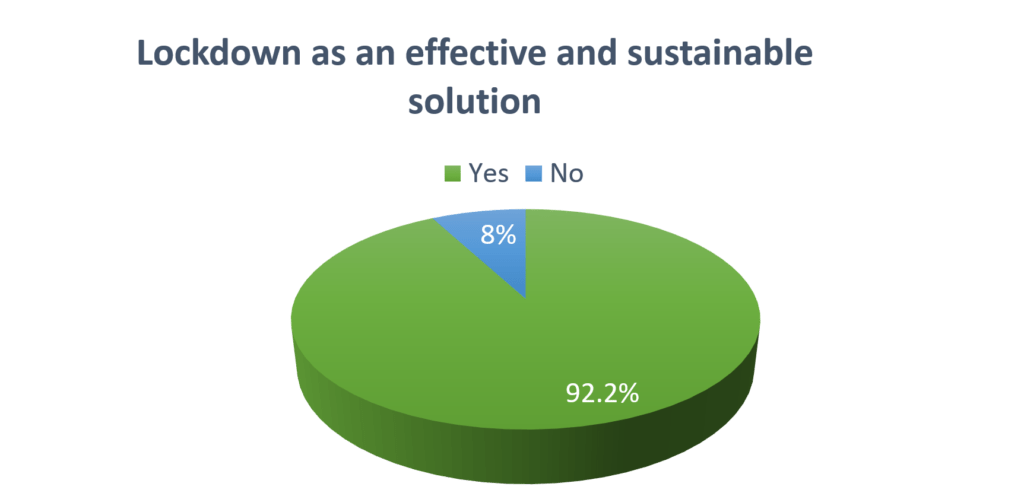
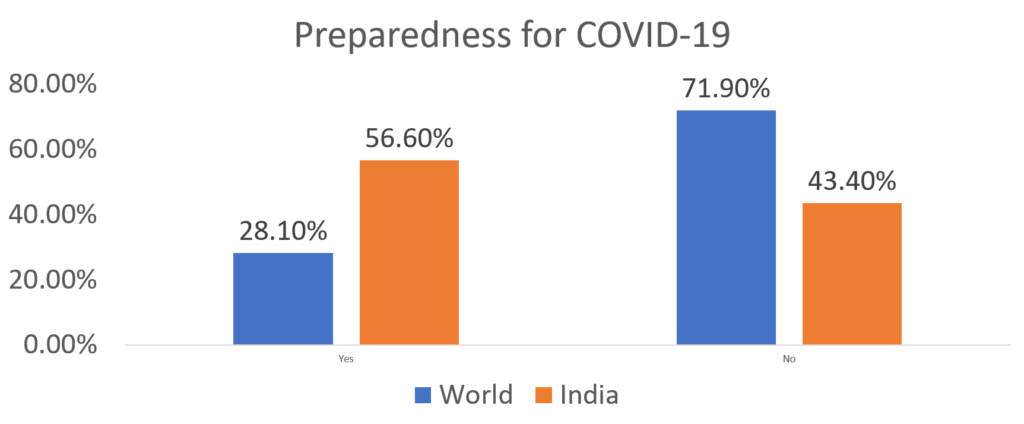
Now while the world will be entering a new era because of this pandemic, there are various pathways to be adopted. It will be important that the pathways we select have to be flexible and adaptive, yet robust and anti-fragile. The pathway chosen has to make humanity stronger with incertitude. We have to learn from our mistakes. This pandemic has to give rise to the fact that our human behavior with fellow species has to change. The rights of animals have to be addressed, unnecessary cruelty towards animals has to end. Authoritarian systems cannot play important roles in global governance. India as the world’s largest democracy, and not China, has the rightful role to be a permanent member of the Security Council in the United Nations. Authoritarian governments have to be banished from global governance.
Finally, in this new era, ‘resilience’ will be a very critical aspect is designing every aspect of moving forward for inclusive and sustainable economic development. Our research over the last decade has found that neighbourhood and community resilience is possibly one of the weakest and least understood feature in the discourse on inclusive and sustainable economic development. The new era will be globalised as a result of technology, and localised as a repercussion of the pandemic. We argue that this new localised globalised world will not be detrimental to the concept of economic development which is inclusive and sustainable. Of course, so long ‘resilience’ and its weakest link has been suitably addressed. Therefore, going forward, as our Prime Minister knows well ‘neighbourhood resilience’ will be a critical component for inclusive and sustainable human development. The concept of ‘neighbourhood resilience’ is valid through various prisms, of varied social sciences, and also in the eyes of our Indic Knowledge systems.
(The quotation has been taken from a previous work of the authors.)
Dr Seema Sharma, University of Delhi, Founding Pandit Deendayal Fellow
Dr Arnab Bose, O. P. Jindal Global University, Founding Pandit Deendayal Fellow
[1] The study was conducted by the authors between 12 March to 18 March 2020. The respondents age ranged from 17 -75 years. Total number of respondents were 562


